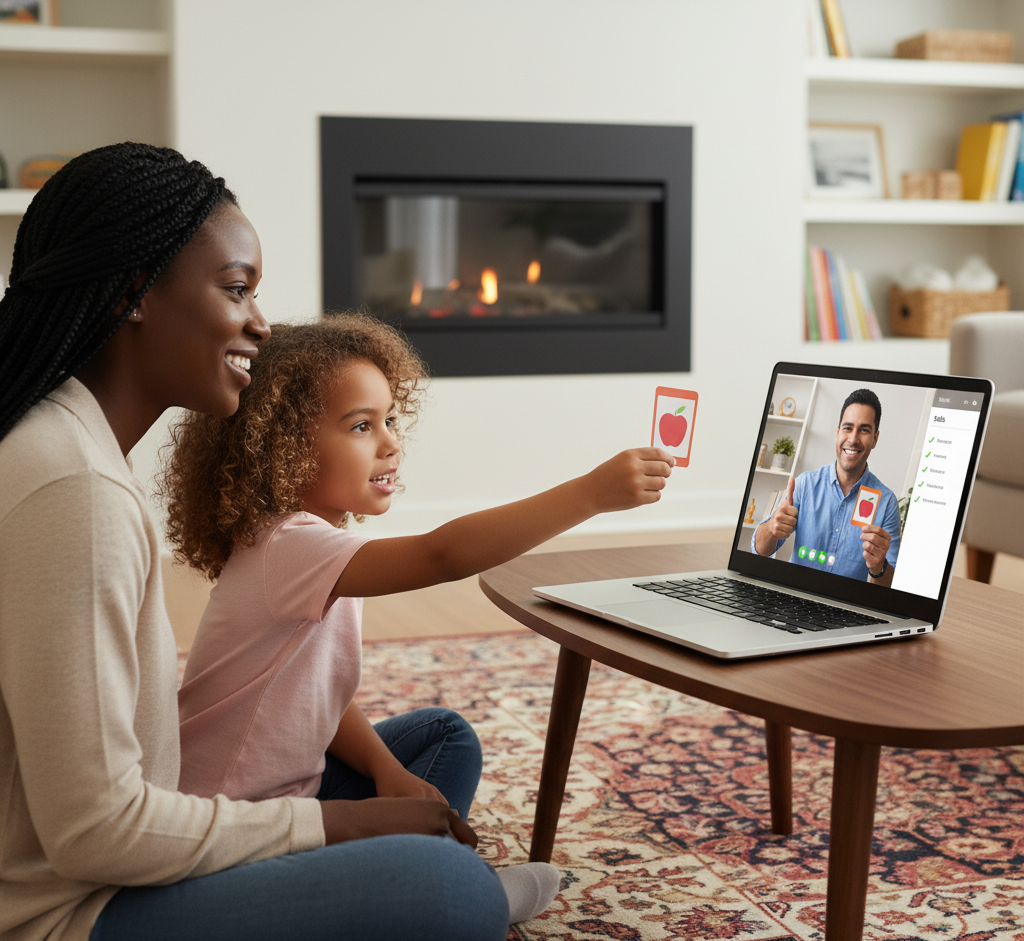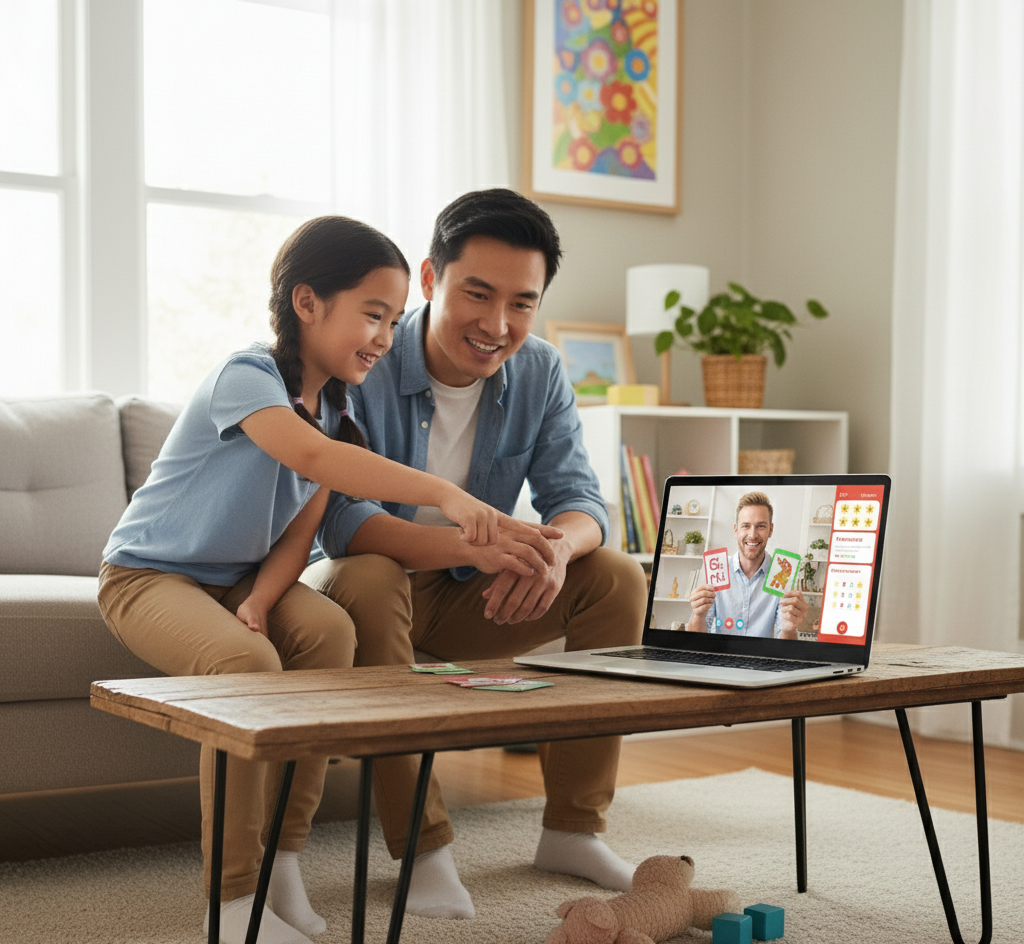Virtual ABA for Teens: Empowering Independent Learners Through Flexible Online Therapy

Why Virtual ABA Actually Works for Teenagers
Think about it from your teen's perspective. Most teenagers resist in-person therapy because:
- They want privacy and don't want to be seen going to "therapy"
- They need flexibility around school, work, and social plans
- They want to feel like they have some control over what happens to them
Virtual ABA respects all of these needs. Sessions happen in their own space, using technology they're already comfortable with. Instead of being something that happens TO them, therapy becomes something they actively participate in shaping.
Your teenager gets to be at the center of their own progress, while you stay involved as their supporter rather than their manager.
What Makes Virtual ABA Different for Teens
Here's what actually matters when we're talking about teenagers:
Flexibility That Works With Real Life Between school, activities, jobs, and friends, teens have complicated schedules. Virtual ABA eliminates drive time and lets us schedule sessions when your teen is actually focused and ready to engage.
Goals That Actually Matter to Them
We're not working on basic skills anymore. We're focusing on things like getting ready for a job, improving friendships, getting organized for college, or learning to advocate for themselves in real situations.
They're Part of Every Decision Your teenager works directly with their BCBA (Board Certified Behavior Analyst) to decide what they want to work on and track their own progress. This gives them ownership over their growth.
Parents Stay Important Without Taking Over You remain a crucial part of the team, but we respect that your teen needs space to develop their own voice and independence.
What We Actually Work On With Teens
Every teenager is different, but here are some common areas families tell us they want help with:
- Having better conversations and reading social cues
- Managing anxiety, frustration, or overwhelming emotions
- Getting organized and managing time better
- Learning to speak up for themselves and make good decisions
- Preparing for jobs, college, or living more independently
- Developing healthy ways to handle stress
Because sessions happen at home, teenagers often feel more relaxed and willing to try new strategies. They can practice skills in their actual environment instead of an artificial clinic setting.
Making Therapy Accessible for Your Family
At Forta, we've built our entire program around what teenagers and their families actually need. We accept Medicaid in 19 states, which means quality ABA therapy doesn't have to break your budget.
Our states include: California, Colorado, District of Columbia, Delaware, Illinois, Kansas, Kentucky, Massachusetts, Maine, North Carolina, New Mexico, Ohio, Oregon, Rhode Island, Tennessee, Virginia, Vermont, Wisconsin, and Wyoming.
Our clinical teams understand adolescent development and know how to balance giving teens independence while still providing the structure and support they need.
What Families Tell Us They Love
Here's the feedback we hear most often from teens and parents:
Teens Feel Respected: They're part of every conversation about their goals and progress. They get to practice being independent in a safe, supportive way.
Therapy Feels Relevant: Sessions connect directly to their real life, not abstract concepts or activities that feel too young for them.
Less Family Stress: No more rushing to appointments, sitting in waiting rooms, or rearranging everyone's schedule multiple times a week.
Better Family Communication: Parents learn new ways to support their teen while the teen learns to communicate their needs more clearly.
A Real Example: How This Looks Day-to-Day
Let's say your 15-year-old, Alex, is working on organization and reducing procrastination.
4:00 PM: After school, Alex has a 60-minute virtual session. The first part focuses on breaking down assignments and managing deadlines, then they practice the strategies together and talk about what's working and what needs adjusting.
6:00 PM: At dinner, you casually reinforce some strategies from therapy, like using a five-minute timer to get started on homework.
By meeting Alex where they are, on their schedule and their terms, virtual ABA stays relevant and actually helpful.
Success Stories: Teens Finding Their Voice
Take Jayden, a 16-year-old from Ohio. After years of clinic-based therapy, he started refusing to go. His mom was frustrated and worried. Then they tried Forta's virtual ABA approach.
"Now Jayden feels like he has a real say in his therapy," his mom explains. "He's working on things that matter to him, like preparing for his first job. He's actually proud of the progress he's making, and his confidence has grown so much."
How to Get Started
The process is straightforward:
Step 1: Schedule a free consultation to talk about your teen's specific needs and goals.
Step 2: We'll verify your Medicaid coverage (if applicable) and match your teenager with a clinical team experienced in working with adolescents.
Step 3: Start personalized, teen-centered virtual ABA therapy from home.
Supporting Your Teen's Path Forward
Teenagers with autism face unique challenges, but they also have incredible potential for growth, independence, and self-expression. They're at a crucial time in their development when the right support can make all the difference.
Forta's virtual ABA program meets teens exactly where they are. We help them develop practical skills, navigate transitions, and take real ownership of their progress. For parents, it's a chance to support your teenager while giving them the space they need to become confident, capable young adults.
Your teen's future is full of possibilities. We're here to help them build the skills and confidence to reach for all of it.


